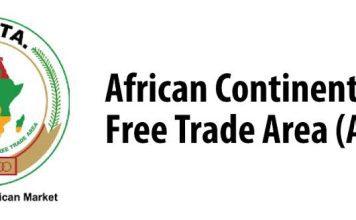As part of its support to the economical growth of the nation, the Manufacturers Association of Nigeria (MAN) has highlighted local manufacturers abiliies to compete globally as an important step to gain access and reap maximum benefits in the African Continental Free Trade Area Agreement.
Though AfCFTA has not fully taken off, the Guided Trade Initiative (GTI) under the trade deal has commenced with the participation of a few countries, excluding Nigeria that is just about to sign off for the guided trade.
GTI was launched in September 2022 to matchmake businesses and products for export and import between interested state parties that have met the minimum requirements for trade under AfCFTA.
Mr Segun Ajayi-Kadir, the Director-General of MAN, stated that the manufacturing sector has not had the microeconomic and infrastructure support needed for growth and the ability to compete.
He stated: “The manufacturing sector is already beset with multidimensional challenges.
“We now have AfCFTA that gives us the opportunity to compete around the African continent. But if we are not competitive, and we cannot grow the sector within the country, your guess is as good as mine as to the millage in terms of market access that we should be able to enjoy.
“So, I believe the manufacturing sector has good growth prospects, but it needs supportive policies that would aid it’s growth in all ramifications.
“What local manufacturers are yearning for are supportive policies that will aid the growth and competitive capacity of the country’s industrial sector in all ramifications,” he added.
Also, Mrs Odiri Erewa-Meggison, the Chairman of Manufacturers Association of Nigeria’s Export Promotion Group (MANEG), noted that “how can exports compete on a global scale without a deliberate intervention from the government? All hands need to be on deck.
“Exporters need deliberate interventions such as access to loans at right rates, support with eliminating administrative bottlenecks and multiple regulatory checks by different regulators. A consolidated or harmonized regulatory approach would be preferred.”
Meanwhile, Mrs Bosun Solarin, the Chairperson of the Export Group of Lagos Chamber of Commerce and Industry (LCCI), said: “When people have found a way to come into business through export, they are confronted with so many bottlenecks, bad policies and insecurity.
“If we don’t pay attention to security, if we don’t pay attention to interest rate so that the productive sector can get money to do business, if we don’t pay attention to logistics so that people can even move their products with ease, then we have not started.
“Nigeria is signing off for the guided trade of AfCFTA very soon, and logistics is a problem to even move things.”
